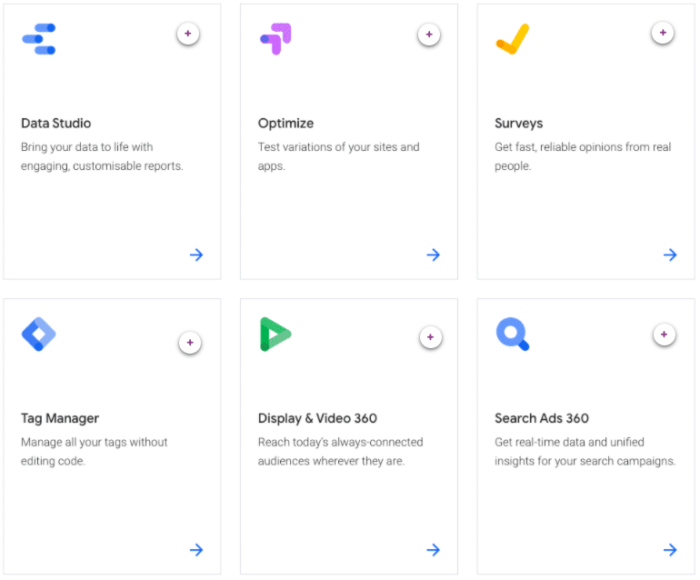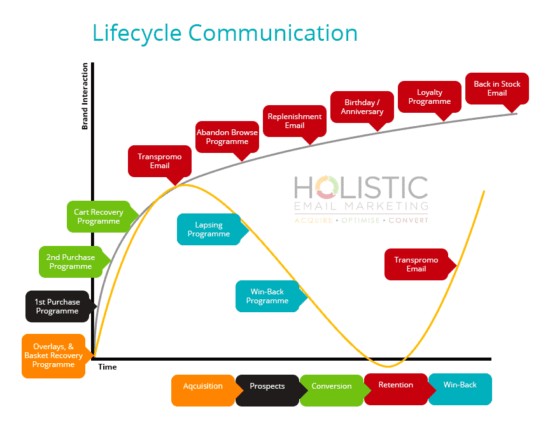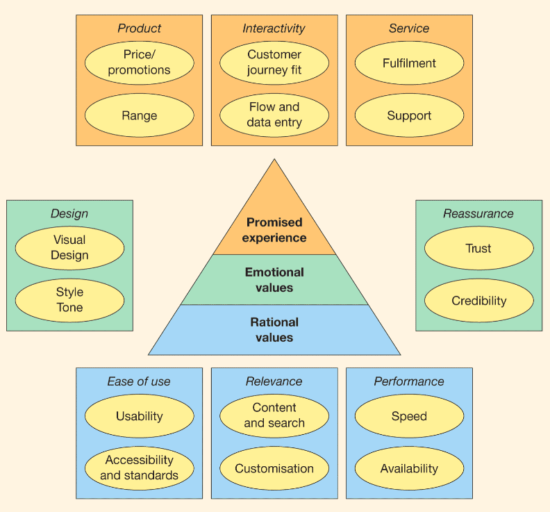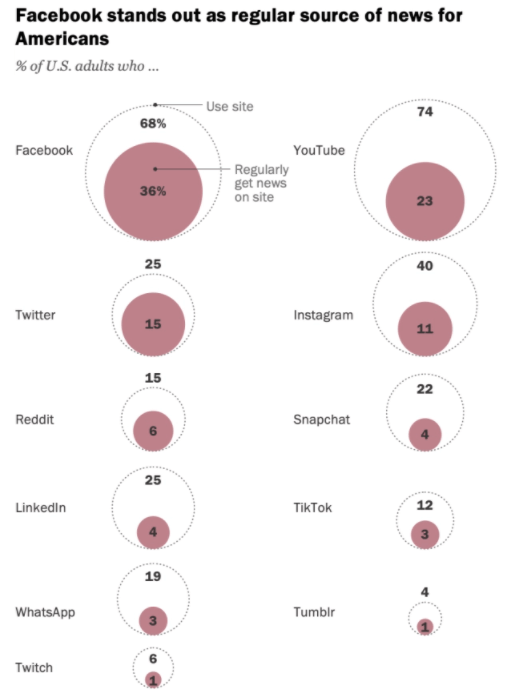Basic marketing principles may remain the same but the digital marketing skills and tools you need to thrive in the workplace are constantly evolving. How can tomorrow's digital marketers future proof their marketing skills?
Preparing for a job in the marketing world tomorrow will be vastly different than it is today. While the basics of marketing may be the same, the digital marketing skills and tools you need to analyze, create, and implement marketing campaigns continue to evolve at breakneck speed.
If this seems overwhelming, don't worry, we have resources in place to help you. Why not start by reading up and finding out more about what digital marketing means today.
Why are digital marketing skills important now? In the March 2023 CMO survey, 46.4% of respondents ranked 'labor/skills shortage' as their top- or second top-ranked challenge over the next 12 months. In other words, there’s a huge gap between the skills they need in the workplace and their current workforce's skillset.
This represents a huge opportunity: Mastering the skills now will prepare you for that future. Here are some of the emerging skills you’ll need to master to be ready.
1. Ability to analyze data and draw insights
The growth of digital marketing has created endless amounts of data. Now, marketers have more access to how campaigns are performing and consumer’s behavior. To make sense of this huge amount of data, tomorrow’s digital marketers will need to master data analytics.
Digital marketing data analytics go beyond just web analytics and website performance. Tomorrow’s digital marketers will need to be well-versed in how data shapes and drives the customer experience across platforms and channels. They will need to master several tools including Google Analytics, Google Ads, Facebook Ads Managers, and various ad exchanges. If their business collects additional customer data, they may need to master Excel and SQL to run queries against the data and uncover insights.
Core Module

Reporting on marketing activities using Google Analytics
Part of the Google Analytics Toolkit
Learn how to use reports to review performance in Google Analytics
Learn MoreUsing this data, digital marketers can track this customer journey to provide insight into what’s working and what leads to conversions. They will be able to see what campaigns are driving valuable customers and which efforts are not delivering an ROI.
Marketers will need to be comfortable analyzing data and recognizing business opportunities. It takes an experienced eye for data wrangling – the ability to take raw data and turn them into business strategies. They will also need to tell stories with that data to inspire action. Google Analytics offers a whole host of tools to help you develop your analytical marketing skills.

Marketing analysts will work with structured data and unstructured data. Structured data, also known as quantitative data, includes facts and numbers that software can collect and order. Unstructured data, also called qualitative data, includes subjective options about your brand such as survey responses, blog comments, or social media comments.
2. Organization and project management skills
Running multiple digital campaigns can get complex quickly. Building an omnichannel marketing plan includes various technologies and different measurements that lead to a lot of moving parts to coordinate. Digital markets need to also have the skills of a project manager and bring together disparate teams to move marketing ideas from concept to completion.
Digital marketing project managers need to manage the workflow process. They should be proficient with tools such as Trello, Basecamp, or Wrike. They will need experience with agile development methods and content management systems (CMS). They must be able to clearly communicate objections and create a seamless marketing funnel
Create your 90-day plan with the RACE Growth System
Download your free RACE Growth System guide today and unlock our three-step plan of Opportunity, Strategy and Action to grow your business.
Download guide
3. Knowledge and appreciation of automation
Marketing automation streamlines, automates, and optimizes marketing efforts. It allows businesses to target customers with marketing and sales messages using workflows. Online marketing efforts can be customized on the fly to send different messages to different prospects at different points in the customer buying journey. Implementing automation helps the team get more done and also creates a better experience for the customer.
Marketing automation has allowed more precise messaging and it’s being widely adopted. Around 68% of marketing leaders currently use automation in some way. Tomorrow’s marketers need the skills to develop automation and content marketing strategies across the customer lifecycle. The diagram below is taken from our Email Marketing and Automation Learning Path.

Core Module

Understand marketing automation opportunities
Part of the Email marketing and marketing automation Toolkit
Learn how to recognize opportunities to automate parts of your email marketing to save you time and resources
Learn MoreArtificial intelligence and machine learning are fueling automation systems to provide more personalized targeting and campaign optimization through constant testing and analysis.
4. UX skills and an understanding of the customer experience
Marketing is no longer just getting the customer to purchase. It now includes the experiences that continue after the sale including onboarding, communications, and even upsells.
Because of this continued effort to keep and upsell current customers, marketers must understand the full customer experience and provide thoughts around the best UX and CX, as demonstrated in the diagram below, taken from our Digital Experience Learning Path.

Marketers need to fully understand the customer, their wants, needs, and pain points. They will then build a full customer experience, from growing awareness of the product or service through the full customer lifespan.
If you're struggling to get buy-in for digital marketing, don't miss our helpful article explaining 10 reasons why you need a digital marketing strategy.
Core Module

Opportunities for improving digital experiences
Part of the Digital experience management Toolkit
Learn how a change in mindset of how a website is managed can drive great benefits for an organisation.
Learn More5. Advanced social media knowledge
For many organizations, social media is an effective way to boost website traffic and ultimately sales. With nearly half of Americans using social media to read news stories in 2020, and a third getting their news specifically from Facebook, clearly your audience is spending time on social platforms.

Tomorrow’s marketers need to go beyond just posting occasionally on social. Rather, they need to understand paid advertising on social, social chatbots, and how to build engaging communities on social. For example, social paid advertising continues to grow with hundreds of options for placements.
Marketers need to research where their audiences are, and what type of creative will most appeal to them. They may need to create content in various forms like images and videos and be able to cut that creative into different sizes to fit the various social feeds. Finally, marketers need to rely on strong analytic capabilities to ensure the social ads are delivering a strong return on investment.
Core Module

Create a social media strategy
Part of the Social media marketing Toolkit
Learn how to structure a social media strategy and translate it into practical actions to improve your goals
Learn MoreAdditionally, marketers need to stay ahead of the curve and be knowledgeable on emerging platforms like Tik Tok, SnapChat and others. Social is an always evolving space that requires understanding best practices while also experimenting with new ways to share information. This work requires both creativity and analytics strategy to measure what social campaigns drive traffic and orders.
Tomorrow’s digital marketers are lifelong learners
The future of digital marketing skills development will continue to be data-driven and competitive. Digital marketers will need to continue to be creative in the content they produce, but also need the skills and tools to measure the success of each effort.
As digital marketing continues to expand, the best marketers will be life-long learners who are hungry to develop and invest in new digital marketing skills.
Building your skills is a key part of success when it comes to your marketing activities. Understanding how to create marketing strategies, how to integrate every part of your funnel and how to report on your results - among many other things - will ensure that you get the results you want.
Matt Shealy is the President of
ChamberofCommerce.com. Chamber specializes in helping small businesses grow their business on the web while facilitating the connectivity between local businesses and more than 7,000 Chambers of Commerce worldwide.














